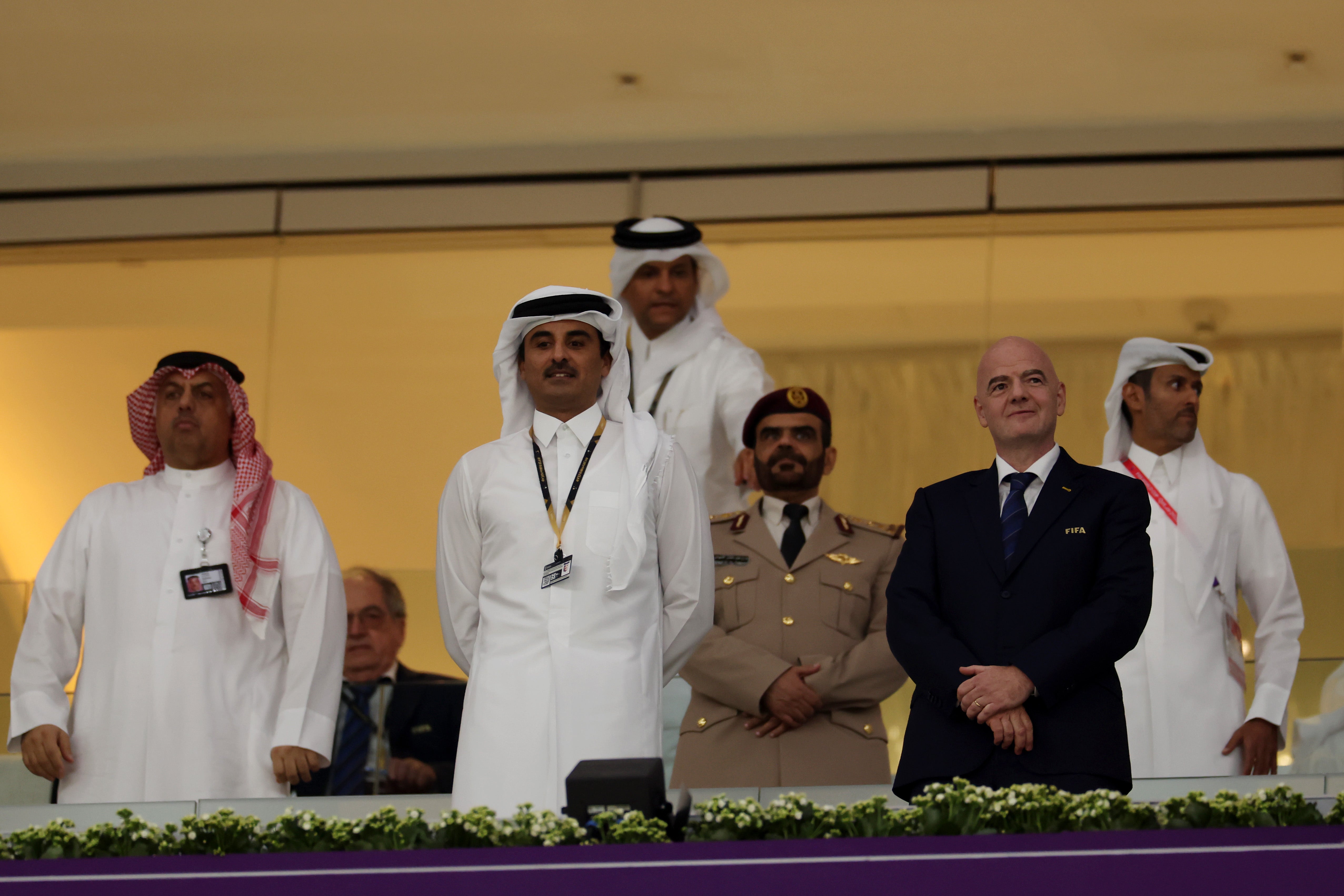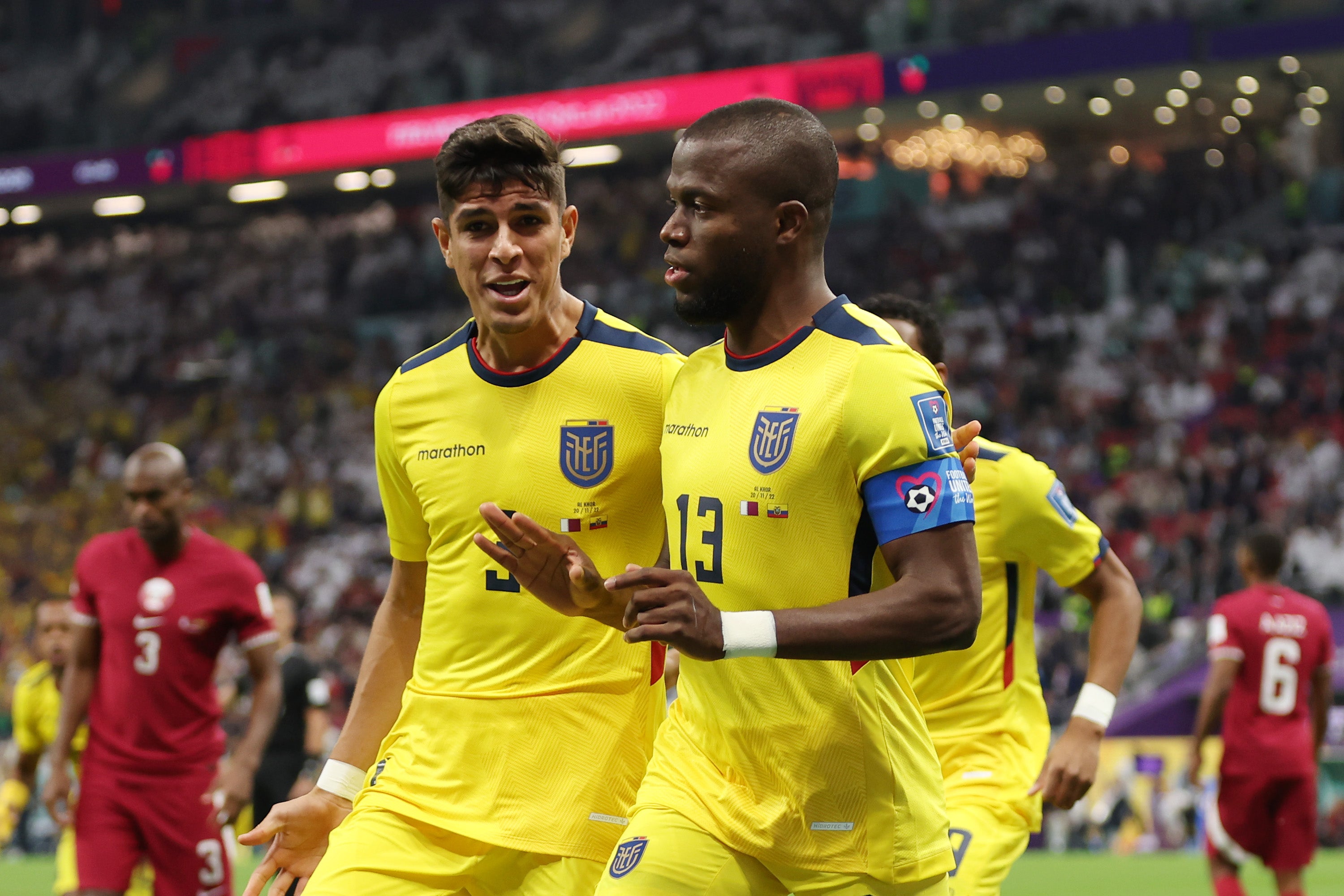Qatar’s opening World Cup impression slips into disaster on and off the pitch
Qatar delivered neither the performance the hosts required nor the logistical competence to ensure everything worked smoothly.

Your support helps us to tell the story
From reproductive rights to climate change to Big Tech, The Independent is on the ground when the story is developing. Whether it's investigating the financials of Elon Musk's pro-Trump PAC or producing our latest documentary, 'The A Word', which shines a light on the American women fighting for reproductive rights, we know how important it is to parse out the facts from the messaging.
At such a critical moment in US history, we need reporters on the ground. Your donation allows us to keep sending journalists to speak to both sides of the story.
The Independent is trusted by Americans across the entire political spectrum. And unlike many other quality news outlets, we choose not to lock Americans out of our reporting and analysis with paywalls. We believe quality journalism should be available to everyone, paid for by those who can afford it.
Your support makes all the difference.Rising out of the desert and out of nothing, the Al-Bayt Stadium provides such an arresting sight that it made for a symbolic choice to host the opening game of the first World Cup ever staged in the Middle East. For the Al-Bayt, perhaps, read Qatar, propelled to prominence by its vast resources and huge ambitions, showcasing them through football.
The Al-Bayt’s roof is modelled on Bedouin tents rather than, say, the Bet365 Stadium in Stoke, lending it a local feel. Outside, there was a parade of camels, all ridden by men in thawbs, to welcome visitors. For the avoidance of doubt, that is also something rarely seen in Stoke, even if Tony Pulis might have appreciated the camels’ ability to intimidate.
On a night that offered an illustration of what Qatar’s $220bn did and did not buy them, the first impression, of the Al-Bayt coming into view, might have been the most impressive. A spectacular lightshow and a firework display that went off perfectly followed, but Qatar delivered neither the performance the hosts required nor the logistical competence to ensure everything worked smoothly.
The colossal cost of this month is measured in Qatari rials; in another respect it is unknown or, at the least, not disclosed, in terms of the lives lost in the construction of the venues for the most controversial World Cup of all. This is why most of the objections to Qatar have been moral. The assumption was they would at least succeed at the practical. And, to put it bluntly, they failed.
For their £220bn, they might have wanted to construct more than one access road to the second-biggest ground in the tournament, rather than delaying everyone in a series of bottlenecks. None of which was an issue for the worldwide audience, but some who paid to attend missed the pre-match formalities; and, even if that might have been a fortunate escape, there were still empty seats at kick-off. For different reasons, there were far more in the second half.
The opening ceremony was the meaningless disguised as the meaningful, but then they often are. Morgan Freeman turned up to talk about unity and respect, scarcely bywords for this tournament, and spent longer on the pitch this World Cup than Karim Benzema will do. Gianni Infantino sat between the emir of Qatar and Mohammed bin Salman of Saudi Arabia, perhaps feeling he was gay, disabled, a migrant worker or a woman. Then again, perhaps not. As messages were conveyed, these were scarcely the most subtle. The Fifa president is comfortable in their company.

Infantino’s much-mocked monologue the day before the tournament started showed a sensitivity to some of the criticism. So did some of the shifting sands, though, on a night of more goals than alcoholic beers; the ebullient Ecuadorians found their own way of celebrating, anyway. They could enjoy an early start.
This game was due to be played on Monday until, with three months’ notice, it was shifted forward. There is nothing new in the hosts kicking off a tournament, but Qatar might now wish they had not: without the platform provided by its date on the calendar, it might have been among the lowest-profile games of the World Cup.
Instead, Qatar’s inadequacies on the pitch were exposed. They froze. They were overpowered by Ecuador. The notion that they might be able to compete lasted all of four minutes and, although Enner Valencia’s goal then was chalked off, it was an indication of his dominance and goalkeeper Saad al-Sheeb’s haplessness. In their differing ways, they were the game’s two defining figures.
Al-Sheeb produced a hideously bad performance, his willingness to come for every cross displaying a surfeit of optimism and a shortage of judgement. He and his teammates made Valencia, the ageing Fenerbahce target man, look like Didier Drogba in a first half when he scored twice, had another goal ruled out and won a penalty.

On a historic occasion, Qatar made the wrong sort of history as the first hosts to lose their opening game. There was a contrast with South Africa, who exited in the group stages 12 years ago, but only after beginning with an uplifting draw that contained a special goal. Utterly insipid, Qatar had no such consolation.
A section of their support kept the volume up, but only one. One group of purple-shirted fans bounced, sang and looked suspiciously well-drilled and somehow contrived to have got all of the seats behind the goal while, either side of them, those dressed rather differently sat very quietly. Many left at half-time, looking for a quick getaway from a ground that took too long to reach.
For some, it might be a lone visit. This stadium has in effect been created for nine games. After the World Cup, the capacity will be halved and some of the ground repurposed as a boutique hotel. But as thousands made their displeasure apparent with their departures and as the official attendance was announced as 67,372 when many of those seats had been vacant for half an hour, Qatar really did not need them all.



Join our commenting forum
Join thought-provoking conversations, follow other Independent readers and see their replies
Comments